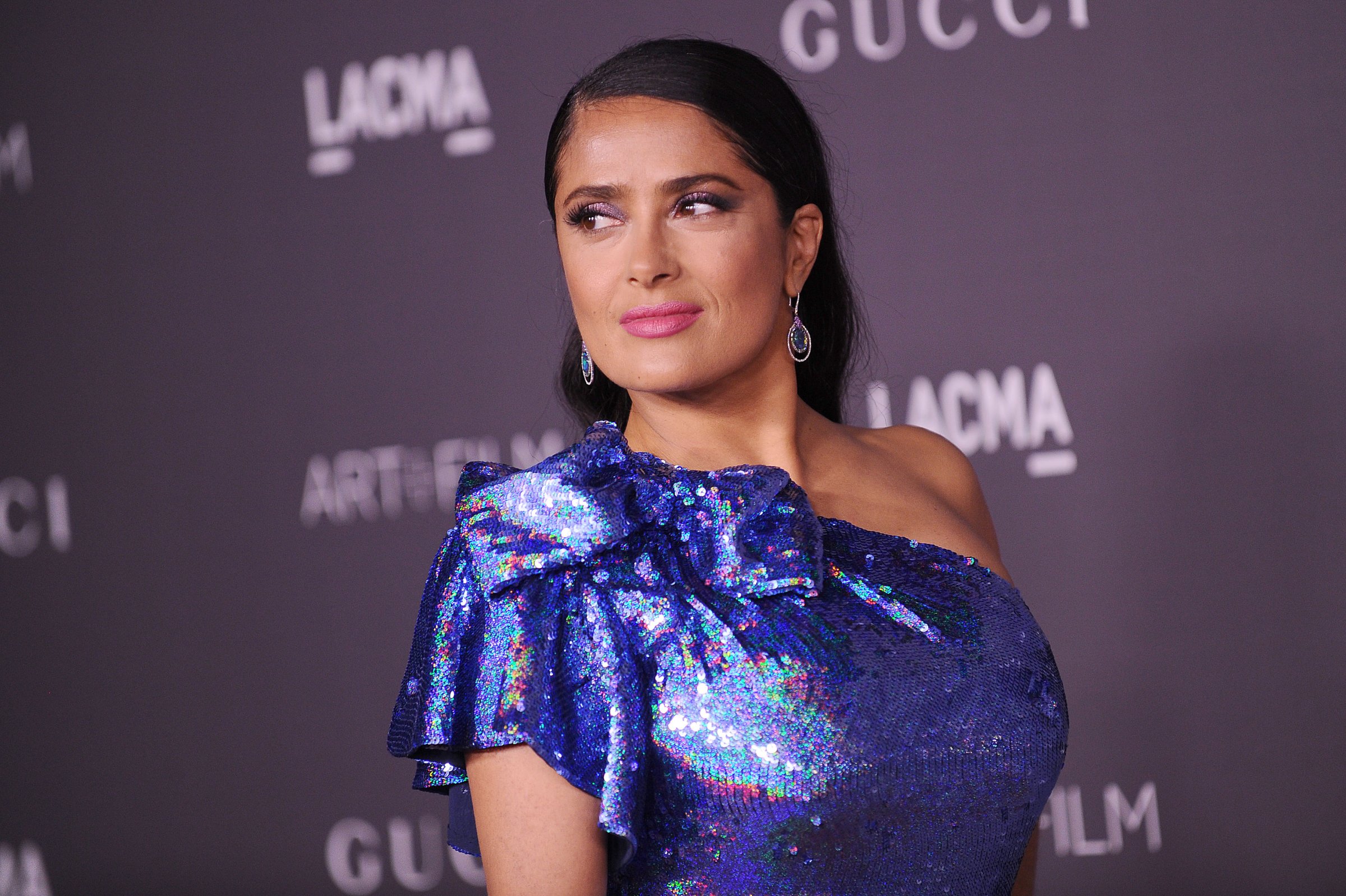
Salma Hayek is speaking out for the first time about Harvey Weinstein’s alleged sexual misbehavior, saying he repeatedly harassed her as she worked to produce her 2002 movie Frida.
Hayek came forward with her allegations in an essay for the New York Times published on Dec. 13, joining dozens of other women who have accused the Hollywood producer of sexual misconduct. Weinstein has repeatedly denied “any allegations of non-consensual sex,” but acknowledged in an October statement that “the way I’ve behaved with colleagues in the past has caused a lot of pain, and I sincerely apologize for it.”
In the essay, Hayek said that early in her career, more than 15 years ago, she was determined to produce and star in a film about Mexican artist Frida Kahlo and thought Weinstein’s first production company, Miramax, would be the best place to produce it. But after she made a deal with Weinstein, she writes, he began sexually harassing her. She said that Weinstein asked her to take a shower with him, engage in oral sex and get naked with another woman. When she declined, she said Weinstein would rage at her, telling her on one occasion that he would kill her.
“In his eyes, I was not an artist. I wasn’t even a person,” Hayek said. “I was a thing: not a nobody, but a body.”
Halfway through the shooting process for Frida, Hayek said Weinstein threatened to shut down the film unless she added a fully nude sex scene between Hayek and her co-star Ashley Judd, who later became one of the first women to come forward with allegations against Weinstein. Hayek said she felt she couldn’t say no to Weinstein’s demand, which would entail being naked in front of him. She said she had a nervous breakdown but managed to get through the scene after taking a tranquilizer.
The film was released to critical acclaim and Hayek was nominated for the Academy Award for Best Actress for her portrayal of Kahlo.
“When I saw him [Weinstein] socially, I’d smile and try to remember the good things about him, telling myself that I went to war and I won,” she wrote. “But why do so many of us, as female artists, have to go to war to tell our stories when we have so much to offer? Why do we have to fight tooth and nail to maintain our dignity?”
Actors including Judd, Gwyneth Paltrow, Lupita Nyong’o and Angelina Jolie have accused Weinstein of sexually harassing or sexually assaulting them. Weinstein was fired from his own company, and the allegations against him have prompted many other women and men to come forward with their own allegations against dozens of other prominent men. Hayek said she decided to share her story after seeing how many others had spoken out.
“When so many women came forward to describe what Harvey had done to them, I had to confront my cowardice and humbly accept that my story, as important as it was to me, was nothing but a drop in an ocean of sorrow and confusion,” she said. “I felt that by now nobody would care about my pain — maybe this was an effect of the many times I was told, especially by Harvey, that I was nobody.”
A spokesperson for Weinstein denied the allegations in a statement. “All of the sexual allegations as portrayed by Salma are not accurate and others who witnessed the events have a different account of what transpired,” the spokesperson said.
More Must-Reads from TIME
- Donald Trump Is TIME's 2024 Person of the Year
- Why We Chose Trump as Person of the Year
- Is Intermittent Fasting Good or Bad for You?
- The 100 Must-Read Books of 2024
- The 20 Best Christmas TV Episodes
- Column: If Optimism Feels Ridiculous Now, Try Hope
- The Future of Climate Action Is Trade Policy
- Merle Bombardieri Is Helping People Make the Baby Decision
Write to Samantha Cooney at samantha.cooney@time.com